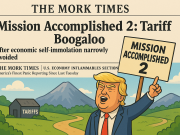The cataclysmic upheaval caused by the COVID-19 pandemic has redrawn the blueprint of economies and industries worldwide, unveiling a new landscape marked by volatility and unpredictability. As the dust settles and we step into a post-pandemic reality, professionals across the spectrum are recalibrating their financial compasses to navigate the reshaped economic terrains. This comprehensive article will dissect the long-lasting impacts of the pandemic on various sectors and guide professionals in constructing robust investment strategies to safeguard their futures.
Reflecting on the Seismic Industry Shifts
The pandemic has acted as a catalyst for transformation across industries, with some sectors experiencing unprecedented growth, while others grapple with profound losses. Technology and healthcare, for instance, have seen a surge in demand and innovation. At the same time, hospitality, travel, and brick-and-mortar retail have borne the brunt of lockdowns and consumer reticence. Understanding these sectoral shifts is critical for investors as they reassess the risk and potential of their portfolio holdings.
Adapting Investment Strategies for Today’s Economy
Traditional investment options have often been the cornerstone of a balanced portfolio. However, the post-pandemic world’s unpredictability begs the question of their current relevance. Stocks, real estate, bonds, and even retirement accounts are being scrutinized under a new lens, with diversification becoming more nuanced. It’s no longer just about spreading investments; it’s about strategic allocation that accounts for both resilience and potential for growth. Exploring alternative investments, such as ESG funds or digital assets, might offer the much-needed hedge against ongoing market fluctuations.
Emerging Opportunities in a Changed World
Despite the challenges posed by the pandemic, there are silver linings. The accelerated digital transformation and the rise of remote work have opened avenues for industries that support these shifts. Cybersecurity, cloud computing, and telehealth are but a few examples where savvy investors might find promising opportunities. Necessity has bred innovation, and industries that adapt and evolve can lead to fruitful investments.
Expert Insights on Retirement Planning
Retirement planning has taken on a new complexion in the wake of the pandemic’s economic shockwaves. Financial experts advocate for a dynamic approach, one that factors in longer life expectancies, changing social security benefits, and the potential for further economic upheavals. A blend of tactical investments, such as Roth IRA conversions during market dips or leveraging tax-efficient withdrawal strategies, is essential to maximize retirement savings in an altered economic landscape.
In conclusion, we stand at a pivotal juncture where careful planning, informed decision-making, and an adaptable mindset are indispensable for financial prosperity. This article serves as a clarion call for professionals to embrace the new normal with informed confidence, armed with strategies that promise security and growth in a world that no longer plays by the old rules. As we continue to journey through these uncharted territories, The Work Times remains your compass, pointing towards a future of financial clarity and success.




























